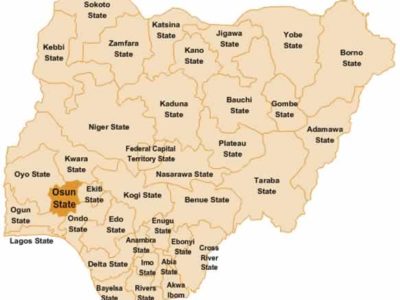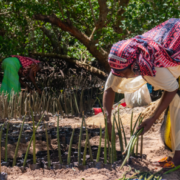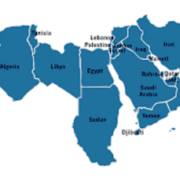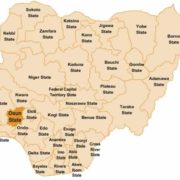By Joe Anuga PhD
Security has been an issue of overarching concern for human beings since they appeared on earth. First, people needed to secure themselves form the vagaries of the elements, then from predatory wild animals and ultimately from one another as they competed for resources and status with each other. To deal with insecurity of all sorts, human beings created and sustained a host of mechanisms (which we can call security systems) to guarantee their safety as best they could. Depending on the nature of their communities, people put in place unique security structures and systems to minimize the disruption that insecurity could cause them. As societies developed and towns and villages were formed, security systems became more elaborate.
In tribal societies with loose central authority structures internal security was maintained through mechanisms that emphasized a shared appreciation of standards of right and wrong by adult members and in addition to this there was a generally acceptable basis for the use of force upon citizens and residents who ran afoul of these standards (of right and wrong) in the community. In more centralized societies with pre modern state structures, security arrangements were largely in the hands of the governing elites whose position in leadership within the community gave them authority to impose the will of the government on citizens and residents. To effectively fulfill their security obligations, the governing elites in centralized communities controlled bands of military and paramilitary units whose livelihood depended on the state through the patronage of the persons whom they served. Such persons also held their positions in accordance with the traditions and constitutions of the societies in which they lived. They held these positions as titled chiefs or as a result of the direct patronage of the sovereign.
Deployment of forces according to existing customs

In both centralized and non-centralized societies in pre-modern times all communities would depend on a general call up of able bodied men in times of conflict involving contests with nonmembers of the community. In less centralized tribal societies, the deployment of forces was done according to existing customs while in more centralized societies, the Chiefs, Kings, Sultans or their representatives would be expected to lead the community’s warrior hosts to confront the enemy. Allied to the overt military forces available to the non-centralized and centralized community was the recognition that the nonmilitary components of security were not to be ignored. Components like guaranteed food and water supply, treatment facilities for the wounded, transportation logistics, weapons manufacturing and training facilities for the combatants as well as effective networks of alliances with neighbors to prevent the fighting community from becoming isolated or attacked from a position that could guarantee they were destroyed. In this way the security structures of pre-modern societies could be quite elaborate.
Pre-modern security systems had connection between social status and political authority

In terms of the structure of these pre-modern security systems there was a connection between social status and political authority in the organization of these security systems. In non-centralized societies, positions of authority were ascribed by custom and conferred titles determined the position of military leaders and commanders in the military structure. In more centralized societies, inherited titles and the will of the sovereign determined the position of combatants within the military structure. A primary goal in the development of elaborate security structures in these societies was the survival and independence of these pre-colonial societies.
One thing to note about these pre-modern security systems in Africa is that they largely succeeded in helping to preserve the ethno-linguistic boundaries of the populations in specific territories across much of the continent. A number of scholars have observed that the stability of ethno-linguistic boundaries in Africa in general (and Nigeria in particular) is quite impressive. They explain that across much of Sub Saharan Africa, when Arab travellers from the 9th century have mentioned the location of specific ethno-linguistic groups in an area, by the 19th century (one thousand years later) when European travellers have reached the same location, they have found the same ethno-linguistic identity in the given area.
For some context if we compare the ethno-linguistic map of Western Europe between the 5th and 7th centuries we find that the extent of change in the ethno-linguistic boundaries is remarkable. The ethno-linguistic boundaries of the Roman province of Britannia (covering roughly the southern two thirds of the island of Britain) moved from being primarily Romano-Briton to becoming Welsh in the Western parts of the island and becoming Angle, Saxon and Jute in the central and southern part of the island between the early 5th and early 7th centuries. The Roman province of Gaul went from being inhabited by predominantly populations of Gallo-Romans in their ethnicity and Latin speaking to becoming Frankish, Burgundian and Visigothic between the 6th and 7th centuries with the Latin dialect spoken by most ordinary people in Gaul becoming the ancestral language from which modern French descended.
Weapons for Security arrangement of pre-colonial societies

An important feature of the security arrangement of pre-colonial societies in Nigeria is the fact that the weapons used in creating the security framework within them before their encounter with the Islamic world or the West is that they were locally made. Most of these weapons were made of iron or iron tipped materials. Those communities whose military forces relied on cavalry units generated the economic resources needed to buy and maintain their horses internally through local production, encouraging both local and long distance trade which could be taxed by the state. All of them in times of insecurity always had the labor forces and economic capacity to surround their towns and villages with walls.
In the decentralized societies elaborate institutions based on age grades and special masquerades among others existed to create opportunities for the fighting forces to train with their military equipment so they could develop tactics to meet all conceivable challenges. In more centralized polities military units were sometimes composed of professional and semi-professional soldiers who were maintained by the state or the feudal lords they paid fealty to. These feudal lords like the state were obliged to keep their military forces regularly trained.
As with all pre-modern agrarian economic systems all over the world, the technological base upon which the military systems of pre-colonial Nigerian societies operated were rudimentary compared to those of even early industrial societies. By the 16th century the empire of Kanem Bornu under Mai Idris Alooma (1570 to 1602) was already using firearms which it had acquired from its contacts with the Ottoman Turkish Empire. The Benin Empire in its campaign against the Igala polity of Idah in 1516 employed Portuguese mercenaries carrying firearms. With time blacksmiths within pre-colonial polities began manufacturing these early firearms while making gunpowder as well.
By the early 19th century most politically sophisticated societies in pre-colonial Nigeria were familiar with firearms. These weapons were very crude by the standards of the newly industrialized powers of the West. Ultimately the technological disparity between industrial society and preindustrial polities guaranteed that Nigerian polities would succumb to conquest by the West.
An important point to draw from the foregoing is that all pre-colonial societies in Nigeria took the reality of socially and politically produced foundations for security seriously. In all their elaborately constructed social structure, they recognized that security for their citizens and residents in their communities was a core component of not only their expenditure, but also the organization of their entire labor force. These are lessons that are required again in the 21st century with increasing insecurity across much of the territory of not only Nigeria but the states that occupy the Sahel as well.
Dr. Joseph Anuga, Ph.D. Political Scientist, Lecturer, Department of Political Science, University of Jos, Jos-Nigeria with scholarly lens on International Politics, Geopolitics, Global Governance & Regionalism, Regional Integration & International Development.



















